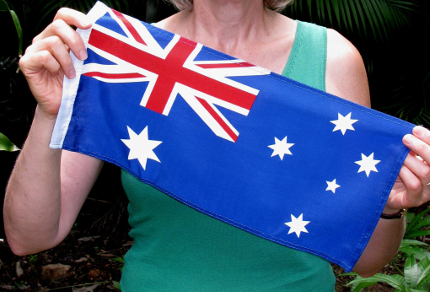Beneath clear skies bordered with a frill of white cloud in the west, I strolled the northern and western edges of the Townsville Golf Club, which – as proudly proclaimed at the golf club gates – was founded in 1893. The club’s crest features a pair of bush stone-curlews with beaks raised. Seeing it caused me to hear in my mind the wailing, haunting cries of the golf course’s resident stone-curlews, a couple of which stood in silence in the shade beneath a clump of shrubs.
Both Vilis and I have heard rumours that the golf course may soon be closing, which could result in a loss of extremely valuable green space within the city. The mature shade trees and palms, as well as the grassy lawns, create diverse habitats for an impressive number and variety of birds, many of which can be observed while simply walking along the two easily accessible borders of the club. Just this morning, I noted 15 species on the course or its periphery and another 6 species flying overhead. I’ve observed many others during the past three months and, while golfers and I’ve shared the course’s early morning ambience, learned some new ‘bird-speak’ or calls – the “whit-whit” of yellow-throated miners, the strident “dee-dee” alarm call of magpie-larks, the “coo-ee” of the eastern koel or rainbird. Birds tend to be more visible than mammals, reptiles, and amphibians, but the sheer abundance of avian life on the course is a good indicator that it may be a haven for other vertebrates as well.
On my return to the house, I decided to devote today’s blog post to a different kind of ‘speak’ – Aussie slang. Beyond the classic Australian accent, which tends to chop words a bit short and shuffles vowel sounds around so that (for those of you familiar with phonics) the long a sound becomes long i and long e becomes long a (I’m writing as a Canadian, of course), Vilis and I have heard a number of quirky idioms and short-cuts. For example, I’ve encountered a suite of abbreviated Aussie nouns relating to people, which consist of the beginning of the generally-recognized word or phrase followed by o. Thus, musicians become ‘musos,’ fishermen become ‘fishos,’ journalists become ‘journos,’ ambulance officers become ‘ambos,’ and drug addicts become ‘drugos.’ Some other nouns are treated similarly, as a ‘doco’ is a documentary, and ‘smoko’ is a break in the work day, presumably shortened from ‘smoke break.’ I don’t know if this trend is a reflection of the laid-back nature of many Aussies, or if it’s simply too hot here to bother with the entire word or phrase.
The same goes for abbreviated words ending in y or ie, such as a ‘cockie,’ meaning cockatoo. It was no surprise to hear and see ‘brekky,’ but ‘choccy’ eggs for Easter and ‘Woolies’ to denote Woolworths, the major grocery store, were a bit unexpected. Other words or phrases I heard, I could connect with their meanings, once I knew what they were; for example, a ‘goat track’ is a rough path, and a ‘greenie’ is an environmentalist. There are, however, Aussie terms bearing entirely different connotations from those with which I was familiar, a good example being ‘sap,’ which is not a dunce or a sticky liquid produced by plants, but a tunnel.
And then, there are words or phrases frought with enticing imagery that initially left me completely in the dark. A ‘stoush’ is a fiery argument, a ‘king hit’ is the equivalent of a sucker punch, to ‘spit the dummy’ is to get angry at or balk at something. All of the above fascinating terms, I encountered in my daily travels and reading of local newspapers. When, out of curiosity I went online, I discovered the existence of entire online dictonaries of ‘talking Strine.’ (Just Google ‘Aussie slang’ for a look.) Now I know where to look when I’m flummoxed by phrases like ‘have a dingo’s breakfast,’ ‘flat out like a lizard drinking,’ or ‘kangaroos loose in the top paddock.’1
Slang phrases from: Koala Net Lives in Australia, 1996-2010. ‘Australian Slang.’ URL: http://www.koalanet.com.au/australian-slang.html. Accessed 12-Apr-2010.
‘Have a dingo’s breakfast’ means to get up, yawn, take a pee, and have a look around. ‘Flat out like a lizard drinking’ means extremely busy. Kangaroos loose in the top paddock’ means not very smart.
Today’s birds: rainbow lorikeets, magpie-larks, Australian white ibis, mynas, peaceful doves (one on nest), sulphur-crested cockatoos, little black cormorant, masked lapwings, great bowerbird, green figbird, rock doves, Australian magpie, white-gaped honeyeater, blue-faced honeyeater, pheasant coucal, red-tailed black-cockatoos, pied cormorant, black kite, bush stone-curlews, yellow-throated miners, white-bellied sea eagle.


